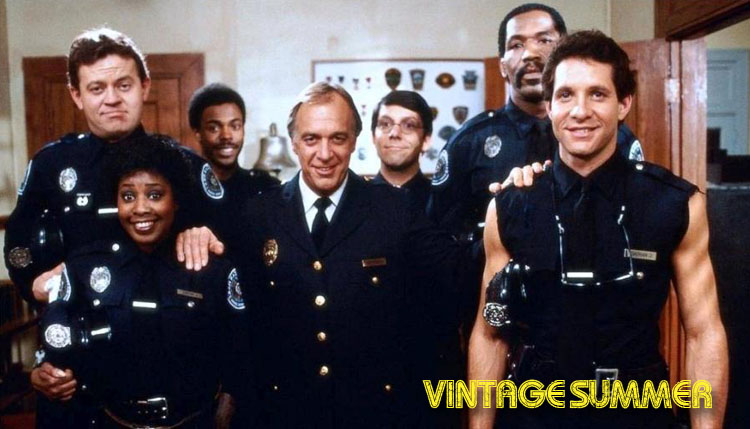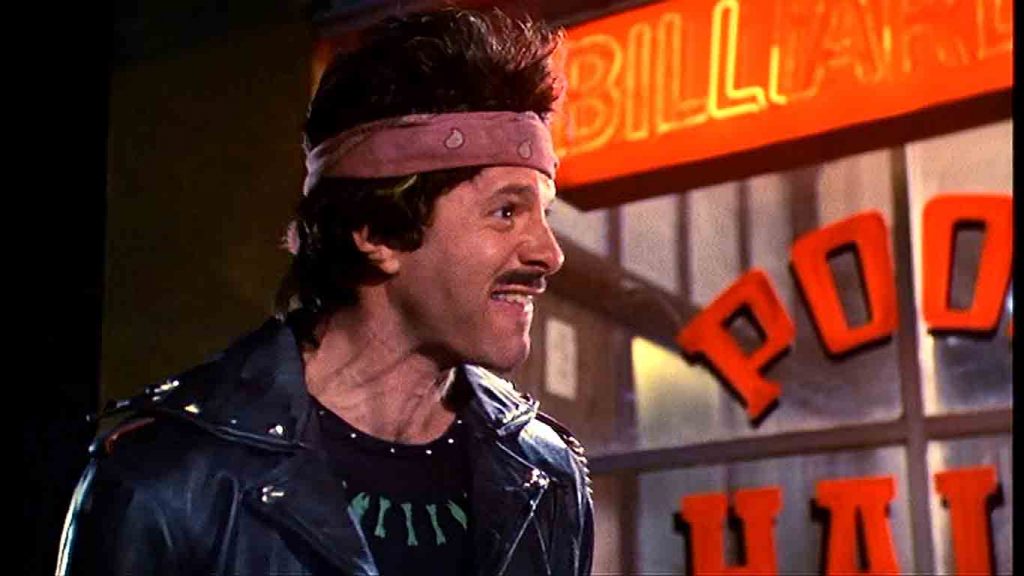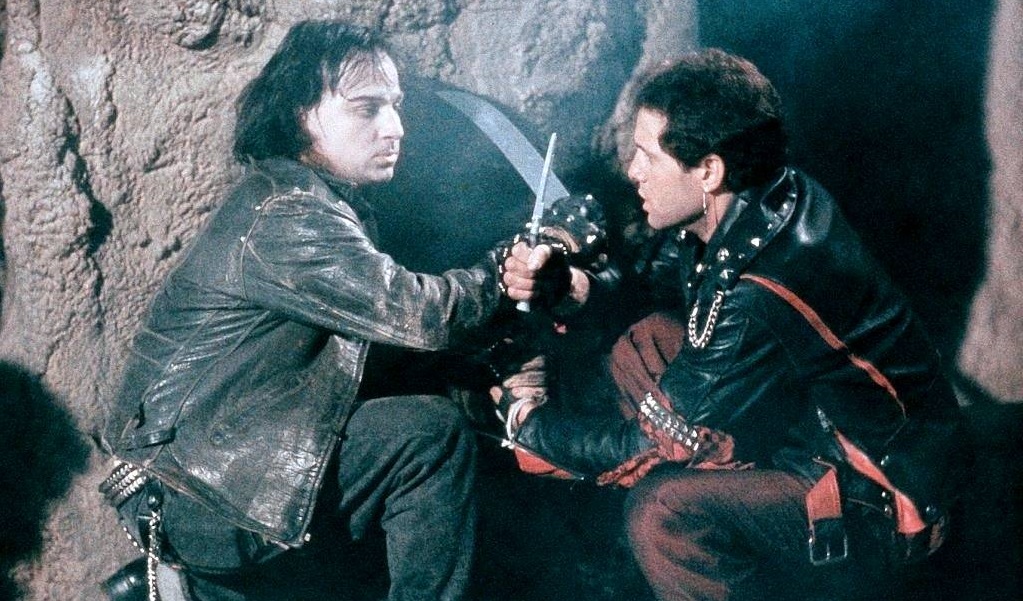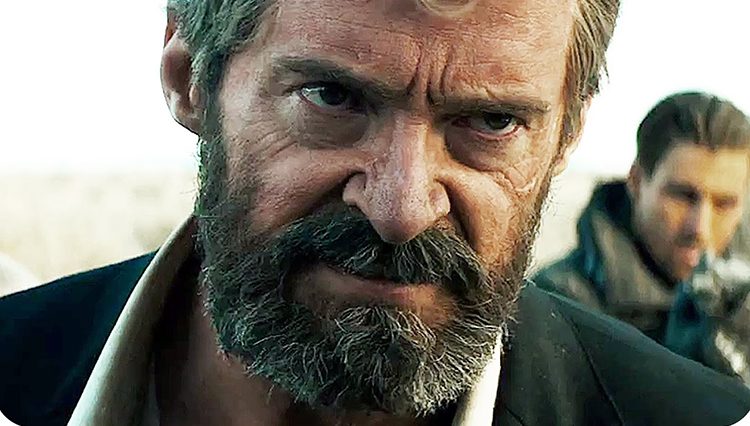
“You have the right to remain silent. You have the right to a court-appointed attorney. You have the right to sing the blues. You have the right to cable TV… that’s very important. You have the right to sublet. You have the right to paint the walls… no loud colors.”
Police Academy II: Their First Assignment, 1985 (Steve Guttenberg) The Ladd Company/Warner Bros.
It’s not as if the first Police Academy movie wasn’t goofy. It most definitely was, but it was a different kind of goofiness than the humor on display in Police Academy II: Their First Assignment. The central characters of this first sequel in the franchise are not either Steve Guttenberg, Howard Hesseman, or even Art Metrano. The two archetypes on prominent display are played by gang leader Zed (Bobcat Goldthwait) and hapless shopkeeper Mr. Sweetchuck (Tim Kazurinsky). Each action and reaction in the script is built around these two characters. Goldthwait represents the “cause,” while Kazurinsky is the “effect.”
With crime on the rise, precinct head Peter Lassard (Hesseman) asks his older brother, Commandant Eric Lassard (George Gaynes) to send him fresh recruits. Lassard sends his brother what he considers to be the best in the form of our heroes from the first Police Academy movie: Carey Mahoney, Tackleberry (David Graf), Hooks (Marion Ramsey), Hightower (Bubba Smith), Larvell Jones (Michael Winslow), and Fackler (Bruce Mahler). Tackleberry falls for the luscious Kirkland (Colleen Camp), meets her violent family, and marries her by film’s end.

We can’t have our heroes without our heavy, and this time it’s Mauser (Metrano), who eyes a possible promotion if Hesseman’s new recruits fail to quell the criminal activity and, as is always the case, he takes an immediate dislike to Mahoney. Mauser gives the recruits low-level assignments and crime continues to skyrocket. Hesseman comes up with the idea to hold a street fair, a symbolic event to “sweep the crime off the street.” It all goes badly when Zed’s gang shows up to terrorize the locals. Hesseman is deposed and Metrano gets his job, and his first order of business is to fire Mahoney.

Mahoney and his gluttonous partner, Schtulman (Peter Van Norden) confab with Hesseman and come up with the idea to deck out Mahoney in gang threads, work undercover, and infiltrate Zed’s gang, the Scullions. They rig up a “Mr. Microphone” as a surveillance device and discover that the gang is hiding out in a dilapidated abandoned zoo on the outskirts of town. Metrano tries to set up his own sting operation, but he fails miserably. This seems to be the standard formula of a Police Academy movie: introduce the good guys, put them through the paces, deal them a set-back, and bring them back to save the day while the heavy is “faced.”
Police Academy was such an enormous box office hit, apparently, nobody had the foresight to lock these actors into a contract because several key players are missing, including Kim Cattrall, Donovan Scott (who played the corpulent cadet Leslie Barbara), and G.W. Bailey (Lt. Harris). When the time came around for a sequel, the actors asked for much more money. The remaining actors received significant pay raises making up nearly 30% of the film’s budget. Even with the success of the first movie, the budget was still kept under $10 million, and the sequel went on to make $115 million worldwide, assuring a third Police Academy movie would be released the following year.




